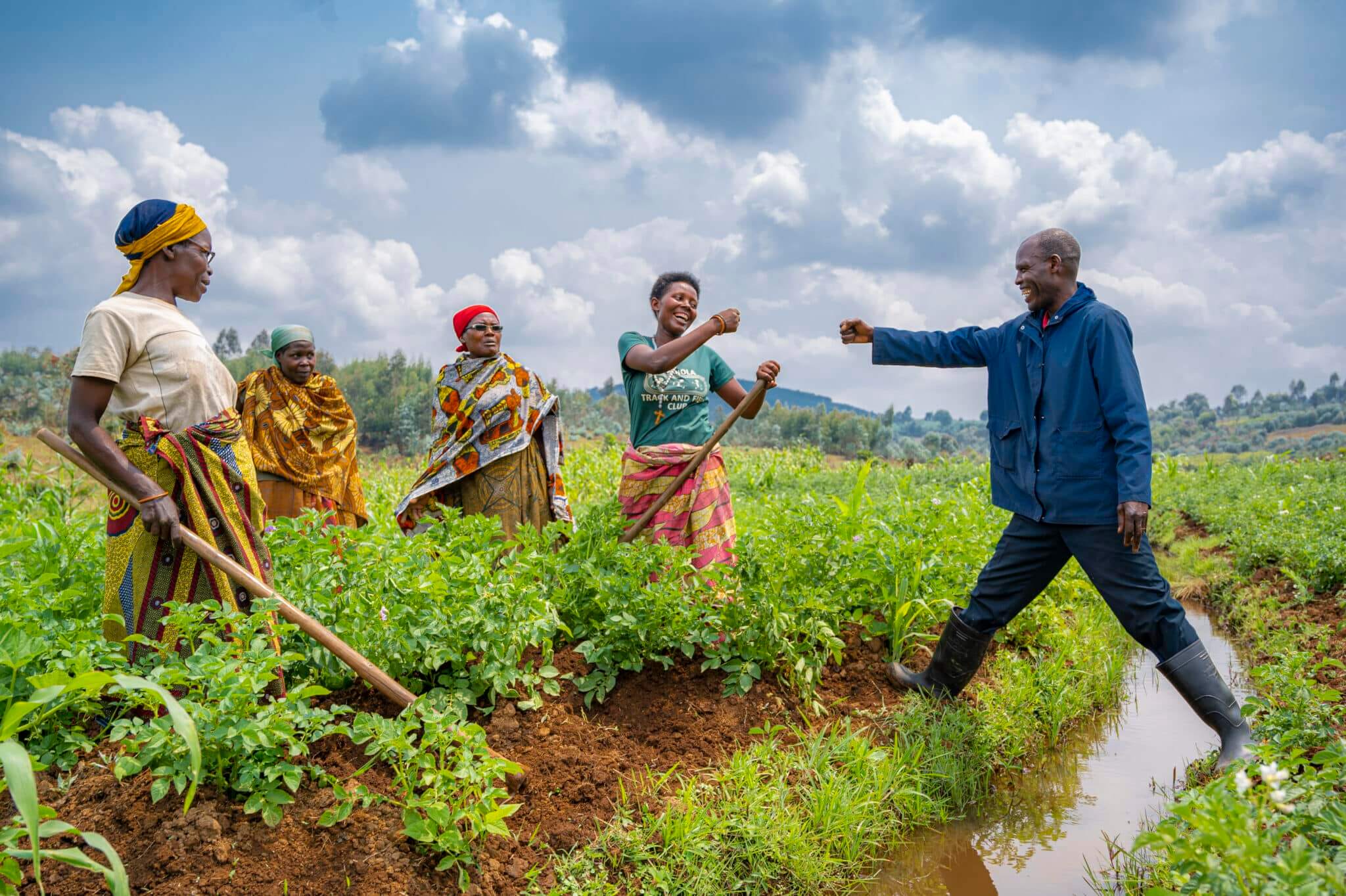On the 30th November, over 30,000 people will arrive in Dubai for COP 28. The UN’s annual climate conference is a huge event, on a huge topic – but it rarely results in huge action befitting of the challenge. Perhaps this one will be different?
6,000 miles south, I am visiting the charity Ripple Effect (formerly known as Send a Cow) in Burundi. Organic veg box company Riverford and our customers have supported Ripple Effect for over a decade, helping families in central and east Africa to become more climate resilient and food secure. A huge thank you to all who have donated over the years, allowing us to raise over £1 million so far.
We arrive in Mwaro, a province to the east of the capital. It’s been a bumpy drive, winding up through beautiful hills to the cool air 1,500m above sea level. The rains have started (late), and the slopes look lush and vibrant with new growth.
But despite the fertility of the land, Burundi is one of the poorest countries in the world, and food security is low. 90 percent of the population rely on subsistence farming. Political instability is now compounded by an unstable climate: in 2021, unprecedented hailstorms ruined crops. In 2022 and 2023, the rains were late, and extreme downpours regularly cause catastrophic soil loss from the steep hills.
We visit a couple called Serge and Odet, who rely on their one-acre smallholding to feed them and their six children. With training and equipment from Ripple Effect, they have transformed their land. Instead of just maize, or bare, vulnerable ground, they now have passion fruits, bananas, Japanese plums, maize, beans, amaranth and sweet potatoes, all jostling for space. Any remaining exposed soil is covered with old banana leaves.
As the field slopes away, deep-rooting Napier grasses are planted alongside small trenches, creating a terrace that further prevents soil erosion. The muck from two pigs (in a newly built shelter) provides fertiliser, and fuel for a small anaerobic digester, which allows the family to cook one meal per day. Food is now abundant; not just to eat, but also to sell at the market. Odet tells me how the skills they learnt have changed their lives – and Serge is now helping to teach other local farmers.
This small, beautiful field on the side of a hill in Burundi is a far cry from the conference halls of Dubai. But the two worlds are linked. At a very local level, Odet and Serge are taking all the action they can. They need world leaders, arriving in Dubai, to do the same.














0 Comments